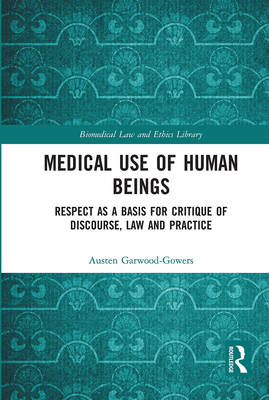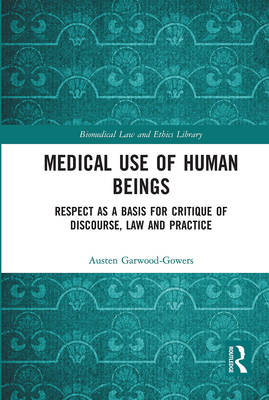
- Afhalen na 1 uur in een winkel met voorraad
- In januari gratis thuislevering in België
- Ruim aanbod met 7 miljoen producten
- Afhalen na 1 uur in een winkel met voorraad
- In januari gratis thuislevering in België
- Ruim aanbod met 7 miljoen producten
Medical Use of Human Beings
Respect as a Basis for Critique of Discourse, Law and Practice
Austen Garwood-GowersOmschrijving
Whilst activities like transplantation and medical research have typically been considered on a discrete basis, they are also actually part of a broader phenomenon of medical means being employed to make use of human beings. This book is the first ever systematic critique of such medical use of the human being as a whole. It is divided into two parts. The first part considers what constitutes an appropriate normative lens through which to view such medical use and its constraint. It makes a reasoned ethical and human-rights-based case for preferring respect for human worth over any of the main alternative approaches that have been drawn on in specific contexts and outlines what this preference practically implies. The second part uses this respect-based lens to critique use discourse, law and practice. Drawing on three contrasting case study areas of warfare-related medical use, transplantation and human tissue research, this book exposes both the context-specific and thematic nature of shortfalls in respect.
Overall this book provides a compelling analysis of how medical use ought to be constrained and a compelling critique of the excesses of discourse, practice and governance. It is recommended to academics, students, policymakers and professionals whose work is focused on or intersects with the medical sector and anyone else with an interest in medicine and its limits.
Specificaties
Betrokkenen
- Auteur(s):
- Uitgeverij:
Inhoud
- Aantal bladzijden:
- 204
- Taal:
- Engels
- Reeks:
Eigenschappen
- Productcode (EAN):
- 9780367726942
- Verschijningsdatum:
- 31/03/2021
- Uitvoering:
- Paperback
- Formaat:
- Trade paperback (VS)
- Afmetingen:
- 156 mm x 234 mm
- Gewicht:
- 303 g

Alleen bij Standaard Boekhandel
Beoordelingen
We publiceren alleen reviews die voldoen aan de voorwaarden voor reviews. Bekijk onze voorwaarden voor reviews.









